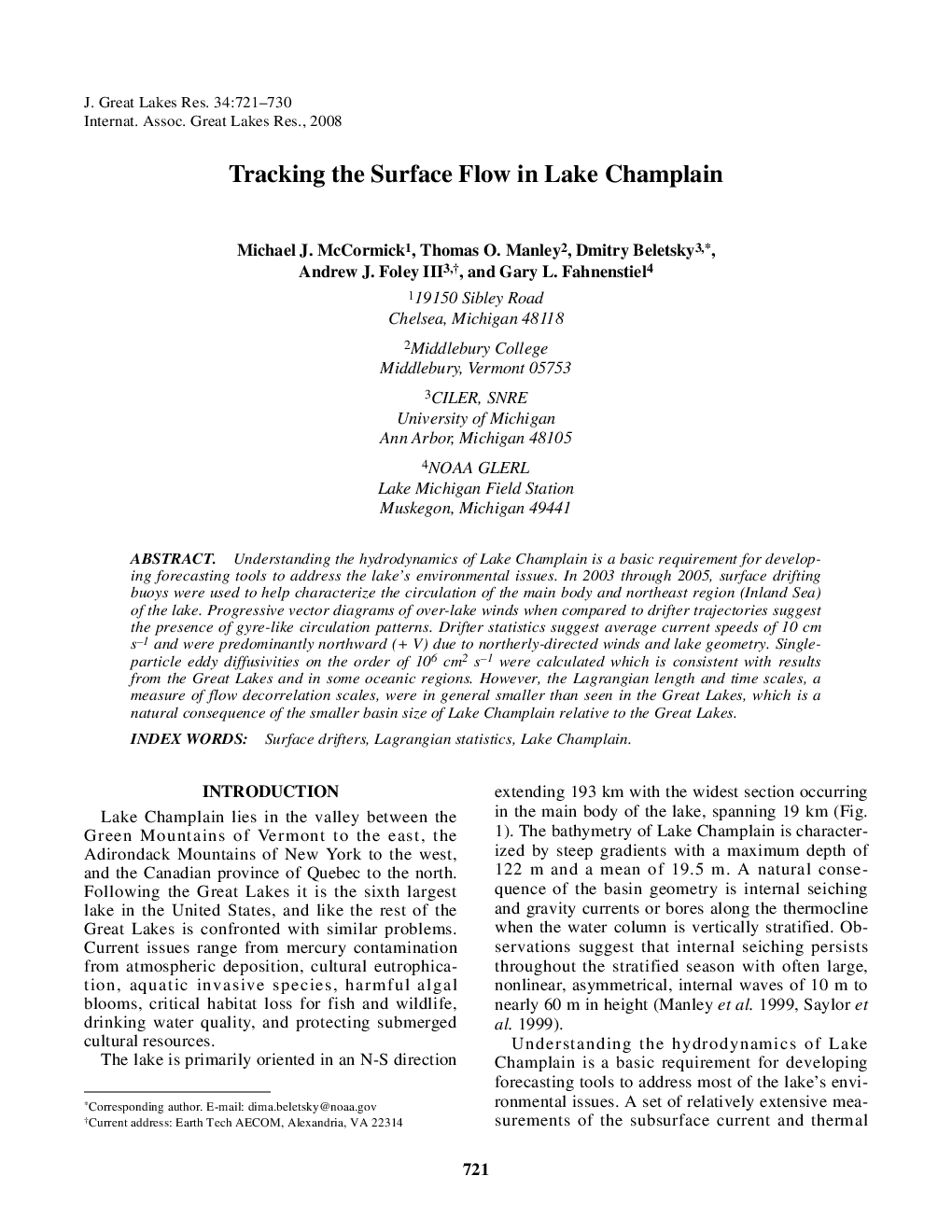| Article ID | Journal | Published Year | Pages | File Type |
|---|---|---|---|---|
| 4399317 | Journal of Great Lakes Research | 2008 | 10 Pages |
Abstract
Understanding the hydrodynamics of Lake Champlain is a basic requirement for developing forecasting tools to address the lake's environmental issues. In 2003 through 2005, surface drifting buoys were used to help characterize the circulation of the main body and northeast region (Inland Sea) of the lake. Progressive vector diagrams of over-lake winds when compared to drifter trajectories suggest the presence of gyre-like circulation patterns. Drifter statistics suggest average current speeds of 10 cm sâ1 and were predominantly northward (+ V) due to northerly-directed winds and lake geometry. Singleparticle eddy diffusivities on the order of 106 cm2 sâ1 were calculated which is consistent with results from the Great Lakes and in some oceanic regions. However, the Lagrangian length and time scales, a measure of flow decorrelation scales, were in general smaller than seen in the Great Lakes, which is a natural consequence of the smaller basin size of Lake Champlain relative to the Great Lakes.
Related Topics
Physical Sciences and Engineering
Earth and Planetary Sciences
Earth and Planetary Sciences (General)
Authors
Michael J. McCormick, Thomas O. Manley, Dmitry Beletsky, Andrew J. III, Gary L. Fahnenstiel,
